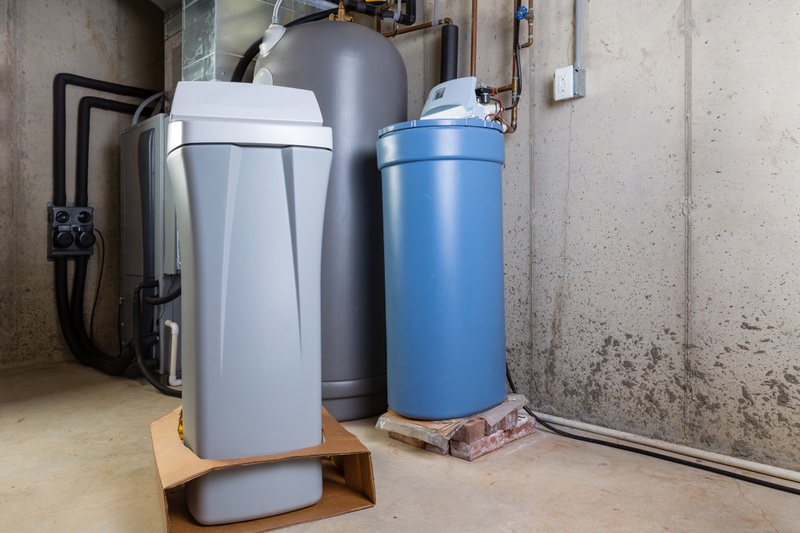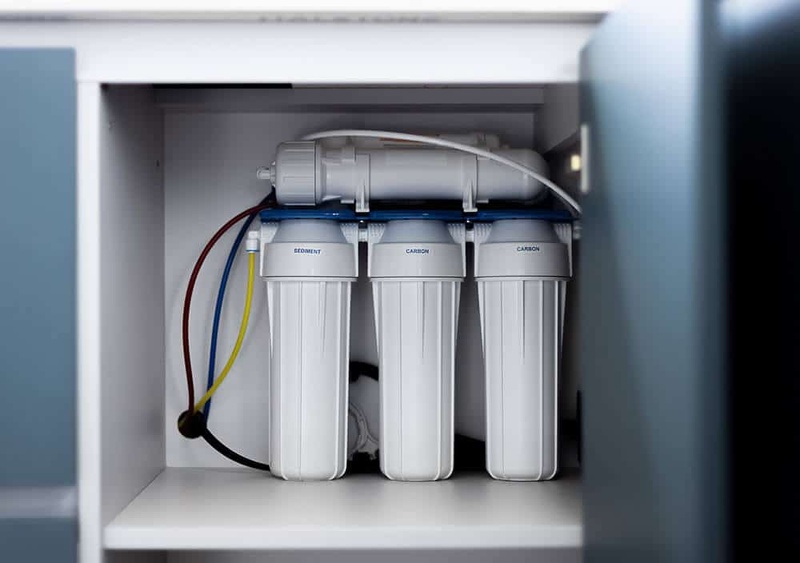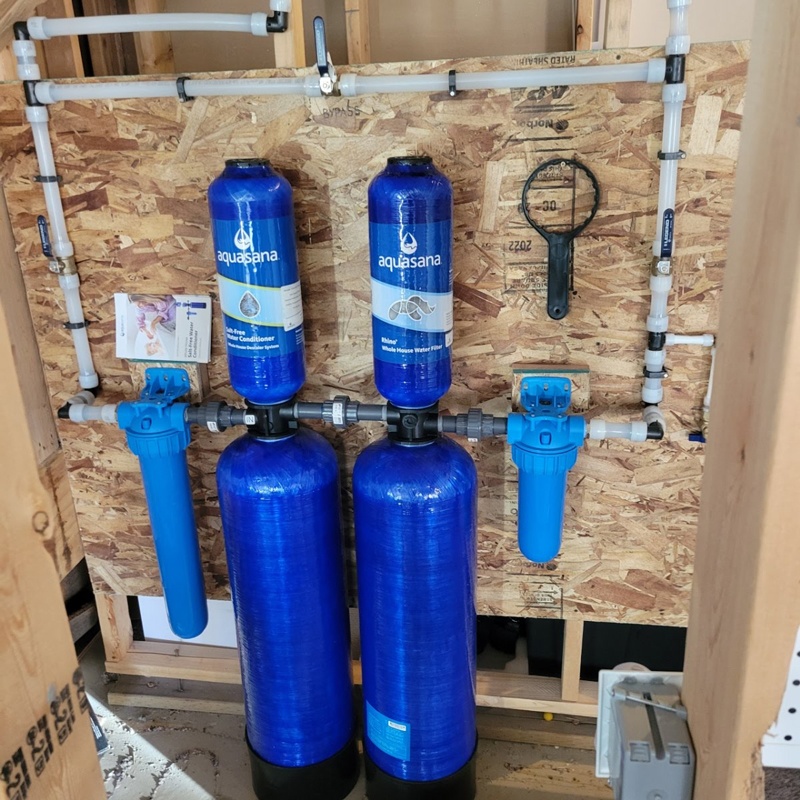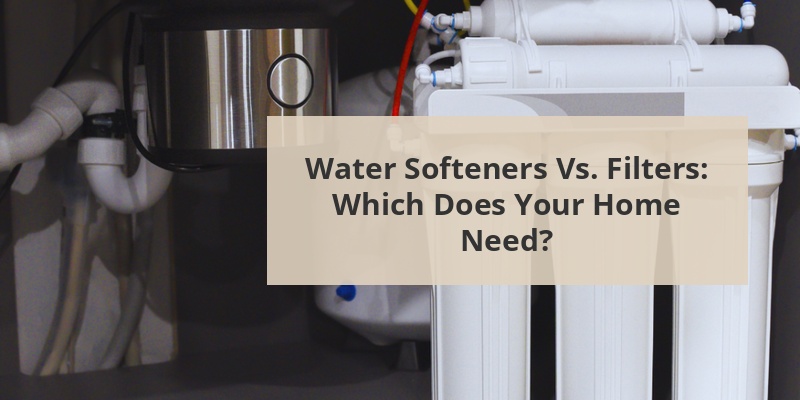Water quality concerns affect many households, but determining whether you need a water softener, a water filter, or both can be confusing. Water softeners specifically target hard water problems by removing minerals like calcium and magnesium, while water filters address contaminants ranging from sediment to chemicals and microorganisms. The right choice depends on your specific water issues, which can be identified through testing. Understanding your home’s particular water quality challenges is the first step toward implementing the appropriate water treatment solution that will protect your plumbing, appliances, and most importantly, your family’s health.
Before deciding on a water treatment system, it’s essential to identify what problems exist in your water supply. Water quality issues generally fall into two categories: hardness issues and contamination issues.
Hard water contains high levels of dissolved minerals, primarily calcium and magnesium. Signs of hard water include scale buildup on fixtures, soap that doesn’t lather well, spotty dishes, and dry skin after showering. While hard water isn’t typically a health concern, it can damage appliances and plumbing over time.
Contamination issues, on the other hand, may include sediment, chemicals (like chlorine, lead, or pesticides), or biological contaminants such as bacteria. These can affect taste, odor, appearance, and potentially pose health risks.
Professional water testing or home test kits can help determine exactly what’s in your water. Municipal water suppliers provide annual water quality reports, but these don’t reflect issues that might develop in your home’s plumbing system.
Content Navigation
What Is A Water Softener?

A water softener is a specialized appliance designed to remove hardness minerals from water. These systems use an ion exchange process where calcium and magnesium ions are exchanged for sodium or potassium ions. The process takes place in a resin tank filled with negatively charged resin beads that attract and hold positively charged hardness minerals.
Call 888-896-7031 for Free Local HVAC Quotes – Compare and Save Today!
Water softeners require periodic regeneration or recharging, which flushes the accumulated minerals from the resin and replaces them with fresh sodium or potassium ions. Most modern systems regenerate automatically based on water usage or a preset schedule.
Benefits of Water Softeners
- Extends the lifespan of water-using appliances
- Prevents scale buildup in pipes and fixtures
- Reduces soap and detergent usage
- Makes cleaning easier as soap scum is reduced
- Softer skin and hair after bathing
- Clothes stay brighter and last longer
However, water softeners do not remove chemical contaminants, sediment, or microorganisms. They address hardness only, which is why some households need both softening and filtration systems.
What Is A Water Filter?

Water filters remove impurities from water using physical barriers, chemical processes, or biological processes. Unlike softeners, filters target contaminants rather than hardness minerals. Different types of filtration systems address specific water quality concerns.
Common Types of Water Filters
| Filter Type | What It Removes | Best For |
|---|---|---|
| Activated Carbon | Chlorine, volatile organic compounds (VOCs), pesticides, some heavy metals | Improving taste and odor |
| Reverse Osmosis | Most contaminants including heavy metals, fluoride, arsenic, nitrates | Comprehensive filtration |
| Sediment Filters | Dirt, sand, rust particles | Pre-filtration, protecting other systems |
| UV Filters | Bacteria, viruses, parasites | Microbial disinfection |
| Ion Exchange | Heavy metals, radium, barium | Specific contaminant removal |
Water filters can be point-of-use (installed at a single tap) or point-of-entry (treating all water entering the home). They require regular maintenance and filter replacement to remain effective.
Do You Need A Water Softener?
You likely need a water softener if you notice these signs of hard water:
- White scale buildup on faucets and showerheads
- Spotty dishes and glassware after washing
- Reduced water pressure due to pipe scale buildup
- Appliances like water heaters failing prematurely
- Stiff, scratchy laundry after washing
- Dry skin and dull hair after showering
- Using excessive amounts of soap to create lather
Water hardness is measured in grains per gallon (gpg) or parts per million (ppm). Generally, water above 7 gpg (120 ppm) is considered hard and may benefit from softening. Water testing kits can determine your water’s hardness level.
Call 888-896-7031 for Free Local HVAC Quotes – Compare and Save Today!
Consider that water softeners typically cost between $500-$2,500 installed, with additional ongoing costs for salt and maintenance. However, these costs are often offset by savings on appliance repairs, cleaning products, and energy efficiency.
Do You Need A Water Filter?
You may need a water filter if you experience:
- Unpleasant taste or odor in your water
- Discolored water (yellow, brown, or reddish tints)
- Sediment or particles visible in water
- Health concerns about specific contaminants in your area
- Your home uses well water (which lacks municipal treatment)
- You have older plumbing that may contain lead
Water quality testing is crucial for identifying specific contaminants in your water supply. Once you know what issues you’re facing, you can select a filtration system that targets those specific problems.
Filter costs vary widely based on type and capacity, ranging from $20 for simple faucet filters to $2,000+ for whole-house reverse osmosis systems. Consider both initial costs and ongoing maintenance expenses when budgeting.
Can You Need Both A Water Softener And Filter?

Many households benefit from having both systems installed. A common and effective setup is to install a water softener followed by a filtration system. This arrangement allows the softener to remove hardness minerals first, which helps prevent scale buildup in the filter and extends its life.
Combined systems are particularly valuable if you have both hard water and contamination issues. For example, rural homes with well water often face both challenges simultaneously.
When installing both systems, proper sequencing matters. Typically, water should flow through a sediment pre-filter first, then through the water softener, and finally through additional filtration systems that target specific contaminants.
Comparing Water Treatment Options
| Feature | Water Softener | Water Filter |
|---|---|---|
| Primary Purpose | Removes hardness minerals | Removes contaminants |
| Installation Cost | $500-$2,500 | $50-$2,000+ (depending on type) |
| Annual Maintenance Cost | $100-$300 (salt, cleaning) | $50-$200 (filter replacements) |
| Lifespan | 10-15 years | 1-10 years (system dependent) |
| Water Usage | Additional water used for regeneration | Some systems waste water (RO) |
| Benefits | Protects appliances, improves cleaning | Improves taste, reduces health risks |
How To Choose The Right System For Your Home
Selecting the appropriate water treatment solution involves several considerations:
- Test your water first – Professional testing provides comprehensive results, while DIY kits offer basic information at lower cost
- Evaluate your specific concerns – Scale buildup points to softeners, while taste/odor/health concerns suggest filters
- Consider your budget – Including both initial purchase and ongoing maintenance costs
- Assess space requirements – Water softeners need room for the tank and brine tank, while whole-house filters require space at your main water line
- Factor in water usage – Larger households may need higher-capacity systems
For most homeowners, consulting with water treatment professionals is worthwhile. They can test your water, recommend appropriate systems, and provide installation services that ensure optimal performance.
Remember that water treatment is not a one-size-fits-all solution. The right system depends entirely on your specific water conditions, home size, budget, and water usage patterns. With proper research and testing, you can make an informed decision that provides clean, high-quality water throughout your home.
Tips for Getting the Best HVAC Prices
- Prioritize Quality Over Cost
The most critical factor in any HVAC project is the quality of the installation. Don’t compromise on contractor expertise just to save money. - Check for Rebates
Always research current rebates and incentives — they can significantly reduce your overall cost. - Compare Multiple Quotes
Request at least three estimates before making your choice. You can click here to get three free quotes from local professionals. These quotes include available rebates and tax credits and automatically exclude unqualified contractors. - Negotiate Smartly
Once you've chosen a contractor, use the proven strategies from our guide — How Homeowners Can Negotiate with HVAC Dealers — to get the best possible final price.

